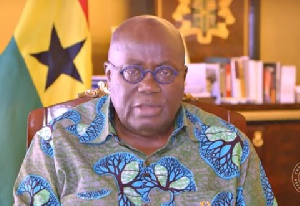 President Nana Addo Dankwa Akufo-Addo
President Nana Addo Dankwa Akufo-Addo
The so called “Legal Profession (Professional and Post-Call Law Course) Regulations, 2017” is nothing but a sham and a last-ditch effort by an out of touch General Legal Council (GLC) to legalize (i) a quota system, (ii) a fatally flawed entrance examination; and (iii) a subjective interview requirement. The proposed Regulation seeks to dismantle the objective, incorruptible, progressive and automatic admission requirements and replace them with subjective, corruptible, regressive and opaque requirements that entrench the GLC’s power and augur ill for legal education in the country.
Given the acrimony, confusion and ultimately the Supreme Court’s repudiation of these abhorrent admission policies, one would have expected the GLC to activate a broad consultation process to seek a way forward that is progressive and reflective of the underlying increase in the population of people interested in legal education.
Alas, the unrepentant GLC has doubled down on its sins and secretly drafted a fatally flawed and self-aggrandizing Regulation in the hope that it could be laid quietly in Parliament to mature into law in 21 days. Clearly, like the bourbons of yore, the GLC learnt nothing and forgot nothing!
The time is ripe for Parliament and all relevant stakeholders to concede that the School of Law, as conceived in 1958, where all LLB degree holders converge to a central location (or locations) to pursue professional courses is an obsolete concept. It is a 1958 solution to offering legal education to 10 law students in a newly emerged independent country, with 1 Law Faculty, that is entirely anachronistic in a matured country with 10 Law Faculties.
In today's world of distance learning and assorted electronic learning platforms, it is entirely unnecessary for students to converge at a centralized location or any central locations to study evidence, procedure, taxation, legal accountancy, interpretation, alternative dispute resolutions, conveyancing, family, company, labor, banking and insurance law. The Ghana School of Law has no comparative advantage in teaching these courses. Nor are these courses so unique that they cannot be taught at the 10 Law Faculties.
The obvious solution therefore is to require law students to take all courses at their Law Faculties after which they can apply to take the Bar examination, administered by a reconstituted GLC made up of fair minded people.
It is time to collapse the faux and unnecessary distinction between the academic and professional law courses. It is also time to restructure the moribund GLC.
No self-respecting Parliament will allow the unruly GLC to legalize and normalize its atrocious admission policies that have occasioned uncommon inconvenience, needless hardship and miscarried justice for thousands of qualified citizens. The Sierra Leone Parliament, faced with a similar set of circumstances, sided with justice and their constituents to reject a similarly fraudulent regulation. We expect no less from our 275 MPs.
The Regulation also seeks to impose additional and unnecessary burdens on Ghanaian lawyers trained in other common law jurisdictions with the primary, if not the sole, purpose of preventing them from practicing in Ghana. There is no reason why these lawyers must be required to attend classes for one year when they can be allowed to demonstrate their proficiency by writing an examination. In addition, these lawyers cannot be converted into cash cows by charging them exorbitant and extortionary entry fees.
The so called “Legal Profession (Professional and Post-Call Law Course) Regulations, 2017” is dead at birth and must be returned to sender. Parliament must not go to sleep and allow the proposed Regulation to ripen into law.
Finally, it is time for Parliament to amend the Legal Profession ACT 32 (1960) to dissolve the GLC as currently constituted and to create a 21st century Council for Legal Education that is responsible for accrediting Law Faculties, administering Bar examinations, and setting and enforcing ethical and quality control standards for qualification and practice as a lawyer.